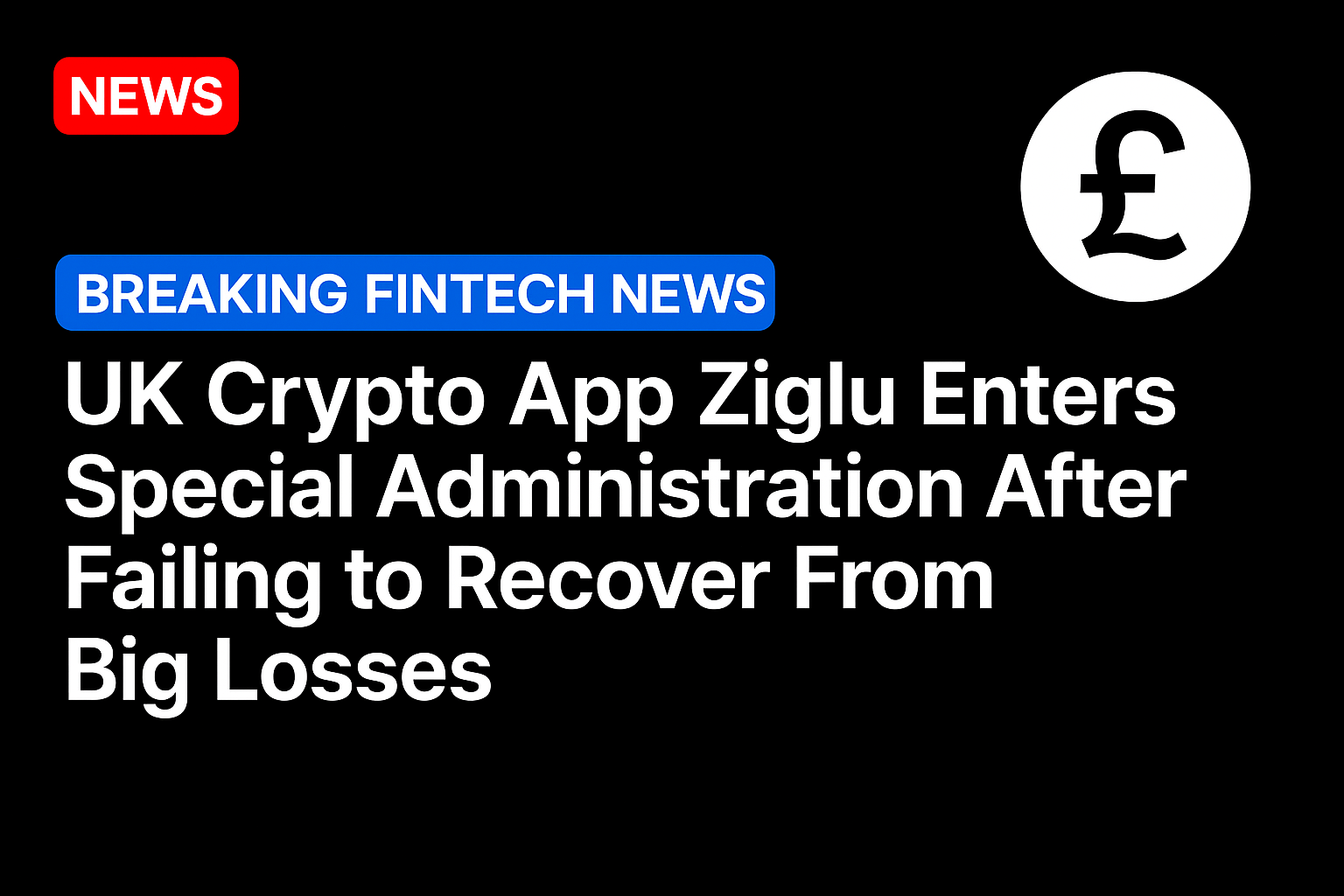Ziglu, a digital finance platform authorised by the Financial Conduct Authority (FCA) to issue electronic money and provide payment services in the UK, has entered special administration after its directors declared it insolvent.
In May 2025, the FCA placed restrictions on Ziglu, which also offered customers cryptoasset products, in a move to protect customers. Shortly after, on 17 June 2025, Ziglu agreed to stop carrying out both payments and cryptoasset activities while still allowing customers to withdraw funds.
However, just nine days later, Ziglu directors applied to place the fintech into special administration because it was unable to meet its financial obligations. Special administration is similar to an ordinary administration, but the special administrators have an additional objective of returning customer funds as soon as reasonably practicable.
On its website, the FCA explained that customers should receive information about how to make a claim within eight weeks of the special administrators’ appointment.
The news follows a turbulent few years for Ziglu, which began in April 2022, when financial services giant Robinhood looked set to acquire Ziglu in a deal worth around $170million. But tough market conditions saw the offer swiftly cut to $72.5million – a move that ultimately led to the deal’s downfall.
Change in fortunes
But earlier this year, the outlook for Ziglu looked very different, at least publicly, and it looked as though it was getting back on track. March 2024 saw Ziglu founder Mark Hipperson take to LinkedIn to say that Ziglu was “stronger and better equipped than ever” following the failed acquisition.
In February 2025, the fintech unveiled a new cryptocurrency, the ‘Ziglu Coin’, backed by a $10million investment, and expanded its presence to Gibraltar to reach new opportunities.
At the same time, Ziglu launched a £5million Series A fundraise at a £45million valuation, to fuel its expansion, explaining that it planned to use the money to accelerate product development and further European expansion.
But it appears the company was never able to truly recover, after incurring losses exceeding £4million in 2023 alone, and £15.8million in 2022.
Source: https://thefintechtimes.com/




